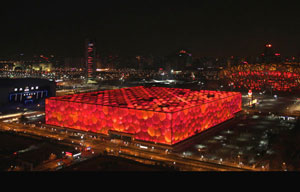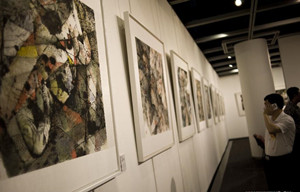Reduced red tape the ticket for artists
Updated: 2013-06-25 17:45
By Mu Qian and Yu Yilei (China Daily)
|
|||||||||||
Overseas artists will soon find it easier to strut their stuff on stage in China.
Starting July 1, applications to perform on the mainland will no longer need approval from the Ministry of Culture. Instead, they will be sent directly to provincial cultural departments, dramatically cutting approval time.
"Now that the procedure is simplified, the time for the promotion and sale of performances will increase. It's good news for the industry," said Zhang Ligang, general manager of Beizhan Performance Culture Co.
Beizhan presented the world-acclaimed Irish tap dance show Riverdance in China, and is planning a tour of the show in 40 Chinese cities next year.
Previously, Zhang had to apply to the provincial cultural department, which would scrutinize the proposal before applying to the Ministry of Culture. The ministry would reply to the provincial department within 20 working days, and then the provincial department would notify the presenter, which could take another 10 working days. The whole process usually takes one to two months.
Now, presenters need only apply to the provincial cultural department, which will decide within 20 working days.
Zuo Kemeng, a presenter based in Shanghai, shares the same optimism as Zhang. Last month, she had to drop a plan to stage a performance of a returning Dutch band in Tianjin because the organizers notified her only 20 days before the scheduled show.
"Normally, if I want to stage a show of overseas artists, I have to prepare an application at least two months before the scheduled show time. The new regulation leaves more room for the presenters. I think it will lead to a more flexible schedule that will allow more artists to come and perform in China," Zou said.
However, some presenters are concerned about possible disparity in standards between different cultural departments.
"My only concern is that local administrations may be more cautious with their decisions and decline some artists the opportunity to visit China, even though they may have a chance at the ministry level," said a presenter from Shanghai who wished to remain anonymous.
The Regulation on the Administration of Commercial Performances forbids performances that are "harmful to national unity and the integrity of sovereignty and territory", "against religious policies" or that spread "obscenity, pornography, evil cults, superstition and violence".
According to the Ministry of Culture, the standard to judge a performance will remain the same under the new policy.
Some people worried about bureaucracy and corruption if the approval process is not properly supervised.
To ensure the regulations are better carried out, the ministry will hold training for provincial cultural department personnel starting this week.
"Through the new policy we hope to become more service-oriented," said Li Rui, an official with the ministry.
"The new policy will help increase the mobility of performances as cultural commodities, and improve the general environment of performances in China."
According to a report by the ministry, the mainland's performance market reached nearly 60.3 billion yuan ($9.83 billion) in 2012, an increase of 60 percent over the previous year. The number of performances on the mainland last year exceeded 2 million.
Sun Mengjin, a music critic and concert organizer in Shanghai, said the new policy is a good sign and it shows the government is becoming more open.
"I hope international artists will encounter fewer hurdles before they can perform in China and the procedures will become more convenient," Sun said. "That will meet the need for China's rapid development in culture and society."
The new regulation is part of a campaign, initiated by the central government, to transform government functions.
Zhang Kun in Shanghai contributed to the story.
|
|
|
| In the mood | Artist Xiao Jiahong exhibites paintings in Hong Kong |
Related Stories
Artist Xiao Jiahong exhibites paintings in Hong Kong 2013-06-25 16:16
4th International Festival of Intangible Cultural Heritage closes in Chengdu 2013-06-25 09:42
Spotlight on HK at Europe's top art fair 2013-06-21 14:33
Yishu 8 Award encourages budding Chinese artists 2013-06-20 17:32
It took a global village to raise her 2013-06-17 17:51
Chinese artist stresses cultural creativity 2013-06-14 11:28
Today's Top News
China shares trim losses after Monday shock
Green goals set for Beijing and nearby areas
Berlusconi convicted on sex charges
Talks with EU over PV exports
US presses Russia over Snowden
China rejects Philippines' illegal seizure of reef
'Exploration part of Chinese dream'
China shares extend losses, sink to new lows
Hot Topics
Lunar probe , China growth forecasts, Emission rules get tougher, China seen through 'colored lens', International board,
Editor's Picks

|

|

|

|

|

|







